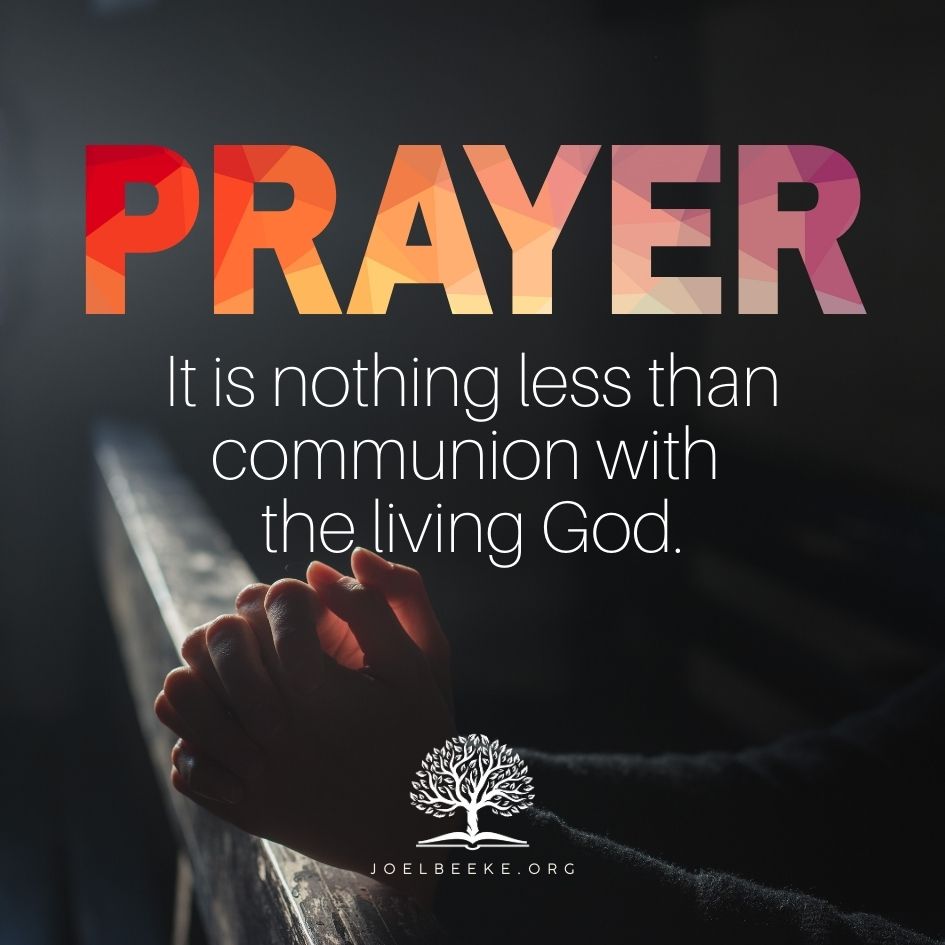
James 5:17 says that the prophet Elijah “prayed earnestly.” Literally, the text says that Elijah “prayed in his prayer” (KJV marginal note 1). James is using a Hebrew idiom intended to intensify the force of the verb. In other words, Elijah’s prayers were more than a formal exercise; he was pouring himself into his praying. Alexander Ross observes, “A man may pray with his lips and yet not pray with an intense desire of the soul.”1Alexander Ross, The Epistles of James and John, The New International Commentary on the New Testament (Grand Rapids: Eerdmans, 1954), 102. You might call it “prayerful praying.”
Consider the tremendous potential of prayer. It is nothing less than communion with the living God. Thomas Brooks wrote, “Ah! How often, Christians, hath God kissed you at the beginning of prayer, and spoke peace to you in the midst of prayer, and filled you with joy and assurance, upon the close of prayer!”2The Works of Thomas Brooks, ed. Alexander B. Grosart (1861–1867; repr., Edinburgh: Banner of Truth, 2001), 2:369.
The great possibilities of prayer should awaken us to the meager realities of our own praying. Is prayer the means by which we storm the gates of heaven and take the kingdom by force? Is it a missile that crushes satanic powers, or is it like a harmless toy that Satan sleeps beside? Are we more concerned about what our human listeners think of our words than about our communion with God? How often do we truly experience prayerful passion for the presence of God?
Our prayer life may be “closed for repairs,” though little repair work seems to get done. Good intentions surface from time to time, but wishes and intentions are no substitute for repentance and the persevering implementation of better habits. The problem is that when our prayer life is boarded up, everything else begins to shut down. How can we live to God in public when we so seldom meet Him in private? Prayerless praying begins to cool long before reaching heaven and falls back on us as cold rain to chill the soul, while prayerful praying lifts us into the light of heaven and warms the soul. Thomas Adam frankly admitted, “I pray faintly, and with reserve, merely to quiet conscience, for present ease, almost wishing not to be heard…. Prayer and other spiritual exercises are often a weariness to me.”3Thomas Adam, Private Thoughts on Religion (Glasgow: Chalmers and Collins, 1824), 68, 73, 76. Is that the condition of your prayer life?
As Greg Nichols points out, a prayerless person is ungrateful because he does not thank God, self-righteous because he does not confess his sins to God, self-centered because he does not ask God to bless other people, presumptuous because he does not pray even for his daily needs, irreverent because he does not praise God nor pray for His kingdom to come, and unfriendly to God because his prayerlessness evidences that he does not enjoy being with God.4Greg Nichols, “Prayerlessness” (Grand Rapids: Truth for Eternity Ministries, n.d.), tapes GN-E 1–4. If your heart is absolutely prayerless, then you are not a child of God. Your first step toward cultivating a prayer life is the step from death to life. You must repent of your sins and trust in Christ alone for salvation.
What then of the true believer who has a praying heart but finds himself stumbling in his prayers? How can he improve? He must take hold of himself and take hold of God.
Excerpt from
How Can I Cultivate Private Prayer?
By Joel Beeke








